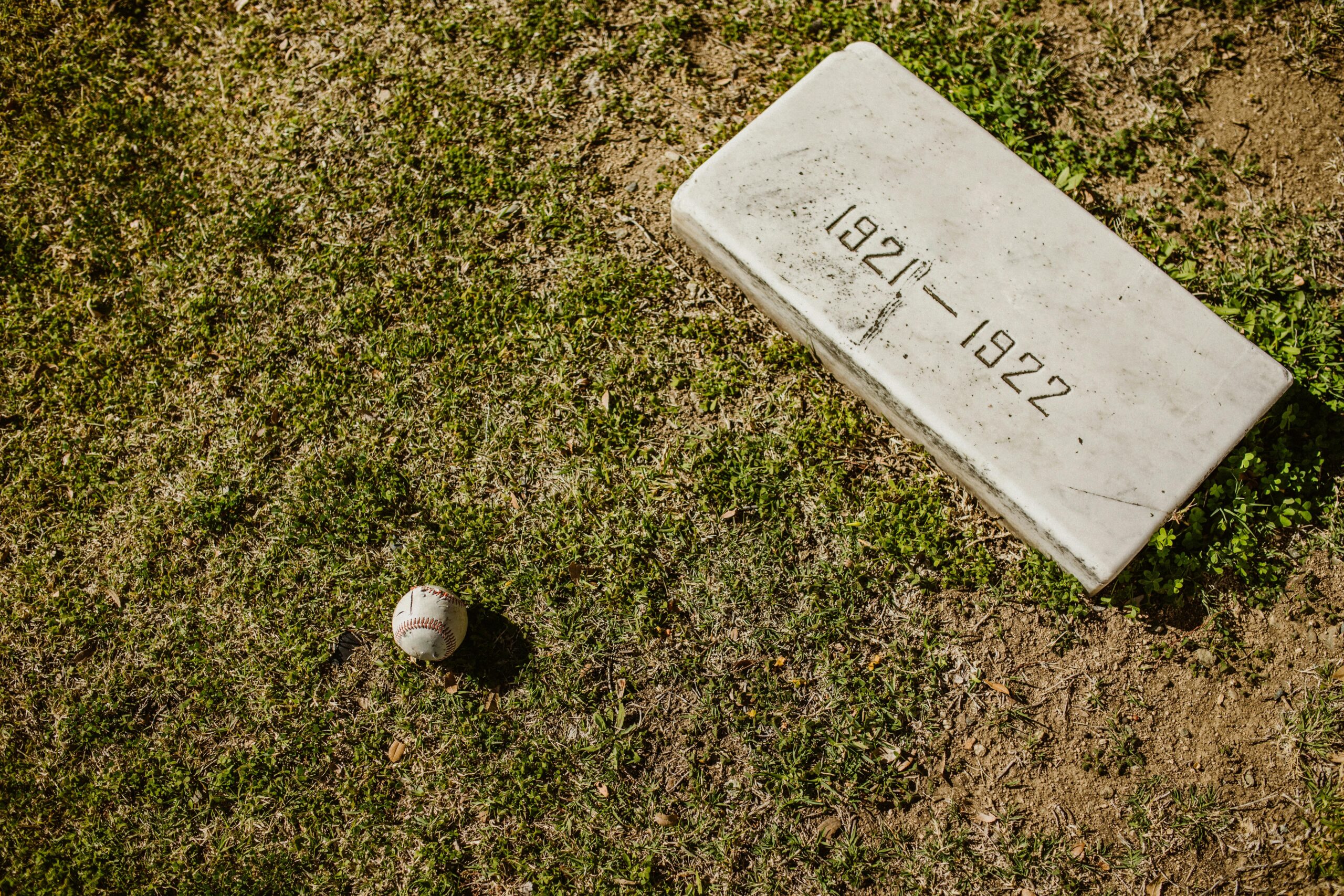The intersection of environmental consciousness and spiritual growth offers a transformative path toward holistic wellness that honors both our inner essence and the planet we call home.
In an era where climate anxiety weighs heavily on our collective consciousness, many seekers are discovering that true spiritual enlightenment cannot be separated from ecological responsibility. Zero-waste spiritual practices represent a revolutionary approach to mindfulness that recognizes the sacred connection between personal transformation and planetary healing. This integration challenges us to examine how our spiritual routines impact the environment and inspires us to align our deepest values with sustainable actions.
The journey toward eco-friendly enlightenment doesn’t require abandoning cherished traditions or investing in expensive equipment. Instead, it invites us to reimagine our spiritual practices through a lens of environmental stewardship, finding innovative ways to reduce waste while deepening our connection to the divine. From meditation spaces crafted from reclaimed materials to rituals that honor natural cycles, zero-waste spirituality offers a profound way to walk more gently on the earth while cultivating inner peace.
🌱 Understanding the Sacred Connection Between Spirituality and Sustainability
Ancient wisdom traditions have always recognized the interdependence of all living things. Indigenous cultures worldwide practiced what we now call “zero-waste” lifestyles not as a trend, but as a fundamental expression of respect for the earth. When we embrace eco-friendly spiritual practices, we’re not inventing something new—we’re returning to timeless principles that honor the sacred web of life.
Modern spirituality often involves accumulating items: crystals, incense, candles, oracle decks, and specialized equipment. While these tools can support our practice, the environmental cost of production, packaging, and shipping contradicts the values of compassion and interconnection that most spiritual paths emphasize. Recognizing this disconnect allows us to reimagine how we cultivate spiritual growth without contributing to planetary harm.
The concept of “right action” appears across spiritual traditions—from Buddhist ethics to indigenous stewardship principles. When our spiritual practices generate excessive waste or rely on exploitative supply chains, we create dissonance between our intentions and impact. Zero-waste spirituality resolves this tension by ensuring our path to enlightenment doesn’t come at the expense of environmental degradation.
Creating Sacred Spaces Without Environmental Sacrifice 🏡
Your meditation space or altar doesn’t need commercially produced items to radiate sacred energy. Nature provides abundant materials that can transform any corner into a powerful spiritual sanctuary. Gathered stones, fallen branches, dried flowers from your garden, and shells collected during mindful beach walks carry profound energy without requiring purchase or packaging.
Consider creating a seasonal altar that changes with natural cycles. In spring, incorporate fresh wildflowers and budding branches. Summer might feature vibrant leaves and sun-bleached driftwood. Autumn calls for acorns, colorful foliage, and harvested grains, while winter invites evergreen sprigs and bare branches. This practice deepens your connection to earth’s rhythms while eliminating waste from artificial decorations.
When you do incorporate purchased items, choose mindfully. Secondhand shops often treasure troves of spiritual tools—vintage singing bowls, gently used meditation cushions, and pre-loved books carry their own stories and energies. Investing in quality items made from sustainable materials means they’ll last decades rather than ending up in landfills after a few uses.
Natural Alternatives for Common Spiritual Tools
Incense represents one of the most wasteful aspects of conventional spiritual practice. Commercial incense often contains synthetic fragrances, produces excessive smoke, and comes wrapped in layers of unnecessary packaging. Instead, try burning dried herbs from your garden—sage, rosemary, lavender, or thyme create beautiful aromatic experiences. You can bundle them yourself using natural cotton twine, creating zero-waste smudge sticks that honor traditional practices.
Candles present another opportunity for sustainable transformation. Conventional paraffin candles release petroleum byproducts into your sacred space and come in disposable packaging. Beeswax or soy candles in reusable containers offer cleaner alternatives, or consider making your own candles using beeswax and repurposed jars. Better yet, embrace natural light when possible—sunrise and sunset meditations eliminate the need for artificial illumination entirely.
Zero-Waste Meditation and Mindfulness Practices 🧘
Meditation requires nothing but awareness, making it inherently one of the most sustainable spiritual practices. However, the meditation industry has successfully convinced many practitioners they need specialized cushions, benches, apps, and accessories. While comfort matters, environmental consciousness invites us to question whether we truly need these items or if simpler alternatives serve equally well.
A folded blanket or firm pillow can provide excellent meditation support without purchasing specialized equipment. If you do want a dedicated cushion, look for ones made from organic materials, filled with buckwheat hulls or kapok, and produced by companies with transparent, ethical supply chains. Even better, learn basic sewing skills and create your own using repurposed fabric and natural filling materials.
Walking meditation offers a profoundly eco-friendly practice that requires no equipment whatsoever. By bringing meditative awareness to movement through natural spaces, you simultaneously cultivate mindfulness and deepen your relationship with the environment. Forest bathing, a practice with roots in Japanese Shinrin-yoku, combines the benefits of meditation with nature connection and physical activity—all without generating any waste.
Digital Minimalism in Spiritual Practice
While meditation apps provide valuable guidance, our devices carry significant environmental costs through manufacturing, energy consumption, and electronic waste. Balance technological tools with unplugged practices. When you do use apps, choose ones that respect your privacy, don’t bombard you with ads for spiritual products, and operate with energy-efficient code.
Consider downloading guided meditations for offline use rather than streaming repeatedly. This small shift reduces data transfer energy consumption. Better yet, gradually transition toward self-guided practice that doesn’t require any device at all. The ultimate zero-waste meditation happens in silence, with no equipment mediating your direct experience of present-moment awareness.
♻️ Eco-Conscious Yoga and Movement Practices
The yoga industry generates tremendous waste through disposable mats, constantly changing fashion trends, and excessive accessories marketed as essential. Authentic yoga practice requires only your body and breath—everything else is optional. If you’re new to yoga, start by practicing on a towel over carpet or grass before investing in specialized equipment.
When you do need a mat, research companies that prioritize sustainability. Natural rubber, cork, and jute mats offer biodegradable alternatives to petroleum-based PVC options. Look for companies that use water-based dyes, minimal packaging, and carbon-neutral shipping. A high-quality mat should last many years, making it a worthwhile investment that prevents cheaper mats from ending up in landfills.
Yoga clothing presents another opportunity for sustainable choices. The athletic wear industry promotes constant consumption of new styles, but yoga actually works best in comfortable, breathable clothing you already own. Natural fibers like organic cotton, bamboo, and hemp regulate temperature better than synthetic fabrics and don’t shed microplastics into waterways when washed. Shopping secondhand for yoga clothes combines affordability with environmental responsibility.
Sustainable Rituals and Ceremonies 🌙
Many spiritual traditions involve rituals marking life transitions, seasonal changes, or lunar cycles. These meaningful practices can be designed with zero-waste principles while maintaining their sacred power. The key lies in emphasizing experience and intention over material consumption.
Moon ceremonies might traditionally involve candles, crystals, and written intentions burned in fire. Zero-waste alternatives could include beeswax candles in reusable holders, stones found in nature rather than purchased, and intentions written on leaves or bark that decompose naturally. The ceremony’s power comes from presence and intention, not from accumulating new objects.
Celebratory rituals for solstices, equinoxes, or personal milestones can center on experiences rather than things. Host gatherings featuring locally sourced food with minimal packaging, create ephemeral art from natural materials, or organize group practices in beautiful outdoor settings. These approaches often create more memorable, meaningful experiences than gift exchanges or commercial celebrations.
Offerings and Gratitude Practices
Many traditions involve making offerings to express gratitude or seek blessings. Unfortunately, common offerings like plastic-wrapped flowers, commercially produced food, or synthetic materials create waste and potentially harm ecosystems. Eco-friendly alternatives honor tradition while respecting the environment.
Consider offerings of biodegradable materials that give back to the earth: flower petals, grains, water, or homemade food. Some practitioners create offerings specifically designed to nourish wildlife or soil. A handful of seeds scattered with intention serves as both spiritual offering and ecological gift. This approach recognizes that true offerings should enhance rather than harm the natural world.
🌿 Herbalism and Plant Wisdom Through a Zero-Waste Lens
Working with plant allies connects many spiritual practitioners to ancient wisdom and natural healing. Unfortunately, the wellness industry’s commodification of herbs often involves overharvesting endangered plants, excessive packaging, and long supply chains. Sustainable herbalism requires thoughtful sourcing and preparation methods that honor both plants and planet.
Growing your own herbs for spiritual and medicinal use represents the ultimate zero-waste approach. Even a small windowsill garden can produce meaningful quantities of sage, rosemary, mint, and other powerful plants. Gardening itself becomes a spiritual practice—tending plants teaches patience, observation, and respect for natural cycles while providing sustainable materials for your practice.
When purchasing herbs you cannot grow, seek out local herbalists or companies committed to ethical wildcrafting and organic cultivation. Buy in bulk using your own containers to minimize packaging waste. Learn to identify and sustainably harvest wild plants in your region, always following ethical wildcrafting principles: take only what you need, never harvest endangered species, and leave plenty for plants to regenerate and wildlife to use.
Journaling and Reflection Without Waste 📝
Spiritual journaling supports personal growth and self-awareness, but conventional practices often involve purchasing multiple notebooks yearly, along with various pens and decorative supplies. Zero-waste journaling maintains the benefits of this practice while dramatically reducing material consumption.
Invest in a high-quality journal made from recycled or sustainable paper with a durable cover that will last years rather than months. Choose refillable pens with replaceable ink cartridges instead of disposable options. Some practitioners use chalkboards or whiteboards for temporary reflections, photographing meaningful entries for long-term keeping. Digital journaling eliminates paper use entirely, though it trades physical waste for electronic energy consumption.
Consider the medieval practice of using a commonplace book—a single, long-term journal that evolves with you over many years rather than starting fresh notebooks frequently. This approach creates a profound record of spiritual growth while minimizing resource use. When one journal fills completely, its completion becomes a meaningful milestone rather than a routine occurrence.
🌍 Community and Shared Resources
Spiritual growth flourishes in community, and sharing resources represents both an ecological and a relational practice. Consider organizing or joining spiritual tool libraries where members can borrow items for specific practices or ceremonies. A singing bowl needed monthly doesn’t require individual ownership—shared access serves everyone while reducing overall consumption.
Skill-sharing circles allow community members to teach each other sustainable spiritual practices: making natural incense, crafting meditation cushions from repurposed materials, identifying local medicinal plants, or creating zero-waste altars. These exchanges build meaningful connections while spreading knowledge that reduces dependence on commercial products.
Online communities dedicated to sustainable spirituality offer inspiration, accountability, and practical tips. However, balance digital connection with in-person relationships to avoid excessive screen time and its associated energy consumption. Local meetups for zero-waste spiritual practitioners create opportunities for material exchanges, shared practices, and collective action toward environmental goals.
Integrating Eco-Activism as Spiritual Practice ✊
True spiritual awakening naturally leads to compassionate action. When we recognize our deep connection to all beings and the earth itself, working to protect the environment becomes an expression of spiritual values rather than a separate activity. Eco-activism transforms from obligation into devotional practice.
This might involve dedicating time to habitat restoration, participating in community clean-ups approached as moving meditation, or advocating for environmental policies as a form of loving-kindness practice. The key lies in bringing spiritual presence and intention to activism, preventing burnout while maintaining effectiveness. Your spiritual practice fuels your activism, and activism deepens your spiritual understanding.
Some practitioners adopt specific ecosystems or species as focus for their spiritual attention and protective action. Developing intimate relationship with a local forest, waterway, or animal population creates personal investment in its wellbeing. This relationship-based environmentalism feels more meaningful and sustainable than abstract concern for distant problems.
🔄 The Ripple Effect of Mindful Consumption
Every purchase decision either supports extractive industries or encourages sustainable alternatives. As spiritual practitioners, we can wield our consumer power intentionally, recognizing that how we spend money represents a form of prayer or intention-setting. Supporting companies with genuine environmental commitments creates market incentives for others to improve their practices.
Before acquiring any spiritual tool or resource, practice the zero-waste hierarchy: refuse what you don’t need, reduce what you do need, reuse what you already have, and only then consider recycling or composting. This mindful approach prevents accumulation of unused items while ensuring everything you do bring into your practice serves a genuine purpose.
The minimalist principle of “one in, one out” applies beautifully to spiritual tools. When you acquire something new, release something old to someone who will use it. This maintains balance, prevents clutter, and keeps resources circulating rather than sitting unused. It also cultivates non-attachment, a core principle in many spiritual traditions.
Measuring Your Spiritual and Environmental Growth 📊
Progress on the path of eco-friendly enlightenment isn’t always obvious, making periodic reflection valuable. Rather than rigid goals, approach this as curious self-inquiry: How has my waste production changed? Do my spiritual practices feel more aligned with my values? Am I experiencing deeper connection to nature and greater peace of mind?
Track simple metrics that matter to you: number of reusable items incorporated into practice, frequency of nature-based meditation, percentage of spiritual tools acquired secondhand or made from natural materials, or time spent in direct environmental action. These concrete measures complement subjective feelings of spiritual growth and environmental alignment.
Celebrate progress without perfectionism. Zero-waste spirituality isn’t about achieving an impossible standard of purity; it’s about continuously moving in the direction of greater harmony between inner work and outer impact. Each mindful choice matters, and incremental change accumulates into significant transformation over time.
Cultivating Gratitude as the Ultimate Zero-Waste Practice 🙏
At the heart of both spirituality and sustainability lies gratitude—deep appreciation for what we already have. When we truly recognize the abundance surrounding us, the compulsion to acquire more dissolves naturally. Gratitude practices require no resources yet profoundly shift our relationship with consumption and contentment.
Daily gratitude meditation focusing specifically on natural gifts—clean water, breathable air, the sun’s warmth, food from the earth—strengthens our motivation to protect these treasures. This isn’t abstract environmentalism but personal appreciation for the sources of our survival and wellbeing. When we feel genuine gratitude for the earth’s gifts, caring for the planet becomes as natural as caring for a beloved friend.
Gratitude also extends to the resources we do use. Taking a moment to acknowledge the materials, labor, and energy that went into creating any item in your spiritual practice cultivates respect and mindful use. This awareness naturally reduces waste because we handle everything with greater care and hesitate before acquiring items we won’t truly value.

Living the Integration: Daily Practices for Consistent Alignment 🌅
Sustainable spiritual living emerges from consistent small actions rather than occasional grand gestures. Morning routines might include meditation in natural light, gratitude for the earth’s gifts, and setting intentions aligned with both personal and planetary wellbeing. Throughout the day, mindful consumption decisions become micro-practices in values alignment.
Evening reflections can include reviewing the day’s choices through both spiritual and environmental lenses: Did I act from presence or reactivity? Did my decisions honor the earth? What can I learn from today’s challenges? This integration ensures that ecological consciousness and spiritual awareness develop together rather than remaining separate domains.
Remember that this journey unfolds over a lifetime. Some days you’ll make choices perfectly aligned with zero-waste spiritual values; other days you’ll fall short. Both offer learning opportunities. The practice lies not in perfection but in persistent return to intention, gentle self-correction, and recommitment to the path of eco-friendly enlightenment.
As we navigate these transformative times, embracing zero-waste spiritual practices offers a powerful response to both personal and planetary crises. By aligning our quest for inner peace with commitment to environmental healing, we discover that true enlightenment cannot exist apart from ecological responsibility. This integrated path honors the wisdom of ancient traditions while meeting the urgent demands of our moment. Each mindful choice ripples outward, contributing to collective awakening and demonstrating that the journey toward a greener mind, body, and soul ultimately serves the wellbeing of all beings and the sacred earth that sustains us all.
Toni Santos is an eco-spirituality researcher and planetary healing writer exploring how earth-based rituals, nature-centred philosophy and sacred ecology reconnect humanity with the living planet. Through his work on environment, consciousness and ritual, Toni examines how our relationship with Earth influences our awakening and actions. Passionate about land-wisdom, ritual practice and ecological integration, Toni focuses on how spiritual life can emerge from ecological awareness and how healing flows from land, water and community. His work highlights the union of ecology, mind and spirit — guiding readers toward a more grounded, relational, and sacred life. Blending ritual studies, environmental philosophy and ecological design, Toni writes about the human-earth story — helping readers understand how living systems, community and meaning intertwine in planetary healing. His work is a tribute to: The sacred connection between humanity and Earth’s living systems The power of ritual to rekindle land-memory and collective renewal The vision of ecology as sacred, relational and transformational Whether you are a ritual practitioner, ecological thinker or planet-healer, Toni Santos invites you to explore the path of planetary awakening — one ritual, one ecosystem, one transformation at a time.




